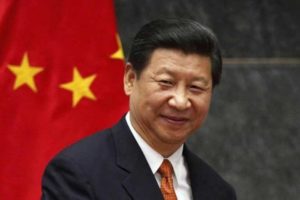
President of China, and General Secretary of the Central Committee of the Communist Party of China Xi Jinping
The 1992 UN Framework Convention on Climate Change (UNFCCC) was passed in Rio de Janeiro with a vision that the reduction of greenhouse gas emissions could be made possible by including a commitment from the developed nations to cut their emissions back to 1990 levels by 2000. At that time, China was a typical developing country as its economic capacity was insignificant in global terms.
Two decades later, by 2011, China had become one of six countries which were responsible for over 70% of the global CO2 emissions; it accounted for 29%, while the U.S. accounted for 16%, the EU for 11%, India for 6%, Russia for 5%, and Japan for 4%.
Climate change is not a ‘normal’ international environmental problem, but rather threatens to cause huge changes in living conditions and challenges existing patterns of energy use and security. Incidentally, a writer such as Kenneth Szabo has irresponsibly referred to China “as one of […]








